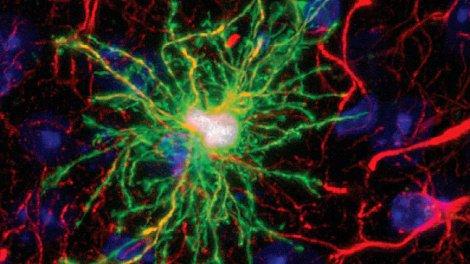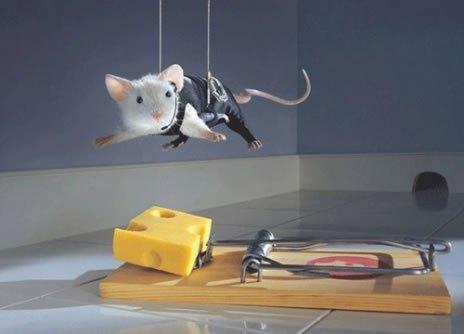Researchers implanted human “progenitor cells” into brains of newborn mice. These mature into a type of brain cell called astrocytes and they grew into human astrocytes, crowding out mouse astrocytes, the brain becoming chimeras of human and mouse.

Mouse neurons built stronger synapses – human astrocytes signal three times faster than mouse’s do. As a result of the experiment, mouse learning and memories were better.

Neuroscience is only beginning to discover what astrocytes do in brains. One job that is known is that they help neurons build connections (synapses) with other neurons. Human astrocytes are larger and more complex than those of other mammals. Humans’ unique brain capabilities may depend on this complexity.
The summary of the research says this;
Human astrocytes are larger and more complex than those of infraprimate mammals, suggesting that their role in neural processing has expanded with evolution. To assess the cell-autonomous and species-selective properties of human glia, we engrafted human glial progenitor cells (GPCs) into neonatal immunodeficient mice. Upon maturation, the recipient brains exhibited large numbers and high proportions of both human glial progenitors and astrocytes. The engrafted human glia were gap-junction-coupled to host astroglia, yet retained the size and pleomorphism of hominid astroglia, and propagated Ca2+ signals 3-fold faster than their hosts. Long-term potentiation (LTP) was sharply enhanced in the human glial chimeric mice, as was their learning, as assessed by Barnes maze navigation, object-location memory, and both contextual and tone fear conditioning. Mice allografted with murine GPCs showed no enhancement of either LTP or learning. These findings indicate that human glia differentially enhance both activity-dependent plasticity and learning in mice.
See? Told you so.
Imagine one of these more intelligent mice running around in your cellar, a creepy thought, hm?
N.
Via: SA

